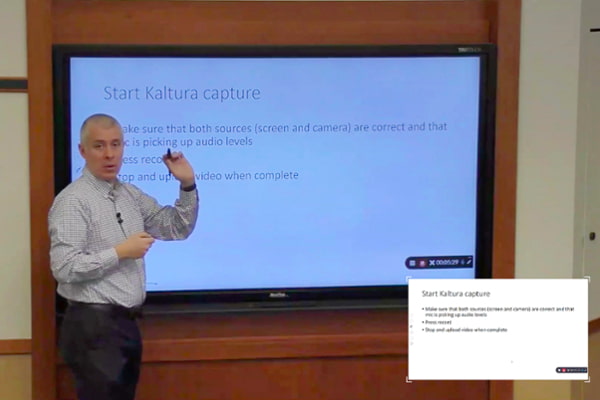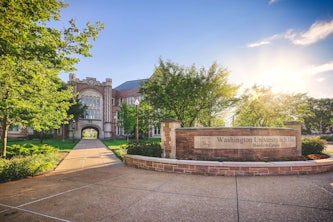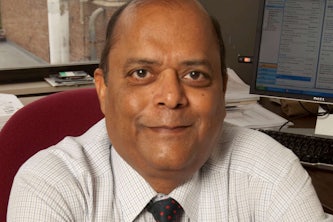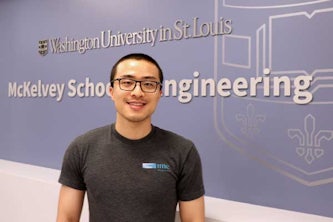McKelvey educational specialists help faculty prepare for hybrid fall semester
To prepare to teach some courses remotely, McKelvey Engineering faculty took part in a three-week workshop that covered online lectures to grading and testing

When McKelvey School of Engineering faculty could not access their classrooms this summer to test drive the newly-installed online technology, Jason Crandall, educational specialist, brought the classroom to them. With his mask, smartphone and a webcam, Crandall walked faculty through the halls of Teaching Center recording studios to demonstrate the classroom technology that would be available to support remote learning.
As part of a McKelvey School of Engineering program to prepare faculty for remote and hybrid teaching in the fall, Crandall and Meghann Pytka, educational specialist, offered several waves of a three-week course-migration workshop and weekly sessions on lecture capture, remote assessments and online grading options, course website preparation, and classroom use through Zoom.
These programs were coordinated by a planning team co-led by Jay Turner, vice dean for education, who has long been recognized as a best teacher by students and peers alike.
“Dean Aaron Bobick stood up the financial resources and continually demonstrated a commitment to this endeavor. In turn, so many people in the school committed to its design and implementation,” Turner said.
The school also launched a teaching blog where faculty could share best practices and get the latest information on calendars, classrooms and more.
“Jason and Meghann provided McKelvey Engineering instructors with best practices to reach maximum potential for both remote instruction as well as for student learning,” Turner said. “A high-touch environment was provided by our school’s education specialists, McKelvey IT, the university’s Center for Teaching and Learning and more.”
More than two-thirds of the school’s 214 instructors materially participated in these programs and continue to benefit from the networks they established through the interaction, and, according to Turner, this support will continue throughout the semester.
“At the end of the day it has been instructors’ commitment, creativity and effort that has led to a rich learning experience for our students whether they are in person or fully online,” he said.
For an interview on re-opening by Student Life, Patricia Widder, senior lecturer in the Department of Biomedical Engineering, shared how she felt about preparations to re-open for the fall.
“It has really made me and my colleagues examine how we deliver material and ask what are the ways we can make it more available to students,” she said.
Of the challenges of the pandemic in general, Widder said, “In a way, I think we are all going to be better teachers for this experience. I know that I feel like I will.”



